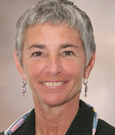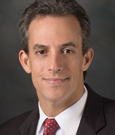In October, ASCO will cosponsor the inaugural Palliative Care in Oncology Symposium with the American Academy of Hospice and Palliative Medicine (AAHPM), the American Society for Radiation Oncology (ASTRO), and the Multinational Association of Supportive Care in Cancer (MASCC). The Symposium is designed to promote discussion and integration of palliative care, and to highlight the latest research findings and state-of-the-art practices in this important area of oncology. The 2-day symposium will take place October 24 to 25 in Boston.
“Palliative care has really come of age,” said Jamie Von Roenn, MD, Senior Director of Education, Science, and Professional Development at ASCO. “You cannot provide optimal oncology care without integrating aggressive symptom assessment, management, and prevention as part of the upfront treatment.”
Growing Emphasis on Palliative Care
In February 2012, a panel of oncology and palliative care experts convened by ASCO released a provisional clinical opinion titled “The Integration of Palliative Care Into Standard Oncology Care,” which was prompted by a growing body of evidence showing that the integration of palliative care into treatment early in the course of care for patients with metastatic cancer leads to better patient and caregiver outcomes. Additionally, the Institute of Medicine recently released its report “Delivering High-Quality Cancer Care: Charting a New Course for a System in Crisis,” which also highlighted the importance of integrating palliative care from the time of diagnosis through to survivorship or end-of-life care.
Based on these calls to action, ASCO leadership determined that the cancer care community, including the growing number of board-certified palliative care professionals, could benefit from a meeting focused on this important area. Previously the only major palliative care in oncology meeting was the Chicago Supportive Oncology Conference, which held its last meeting in 2012.
“This program will not only fill an educational gap, but it is responding to this larger emphasis on palliative care in oncology,” said Michael J. Fisch, MD, MPH, Chair of the meeting’s planning committee and Chair of the Department of General Oncology at The University of Texas MD Anderson Cancer Center.
Focus of Symposium
The Symposium will include scientific oral abstracts and posters, education sessions, and a keynote lecture. In addition, attendees can expect an intimate setting for high-quality interactions between attendees and faculty.
The meeting program will focus on five overarching areas of content:
- Patient experience of symptoms and toxicities of treatment, including attention to basic mechanisms and pathways involved;
- Novel models of early integration;
- Psycho-oncology, including assessment and management of distress, anxiety, and depression;
- End-of-life care, including advanced directives, patient- and family-centered care, and use of hospice; and,
- Survivorship care, focusing on chronic and late effects of cancer treatment, and the use of survivorship care plans.
Social Media Presence
Dr. Fisch encourages attendees and parties interested in the meeting to take advantage of social media during the meeting dates. Dr. Fisch will be tweeting live from the meeting at his Twitter handle @fischmd and attendees are encouraged to post relevant updates using the meeting’s official hashtag #pallonc.
“There is quite a range of interactions that can occur through social media,” Dr. Fisch said. “It is a great way to engage professionals, patients, and their families who cannot attend but are interested to see what new research is emerging.”
To find out more about the meeting and to request meeting updates, please visit pallonc.org. ■
© 2014. American Society of Clinical Oncology. All rights reserved.



